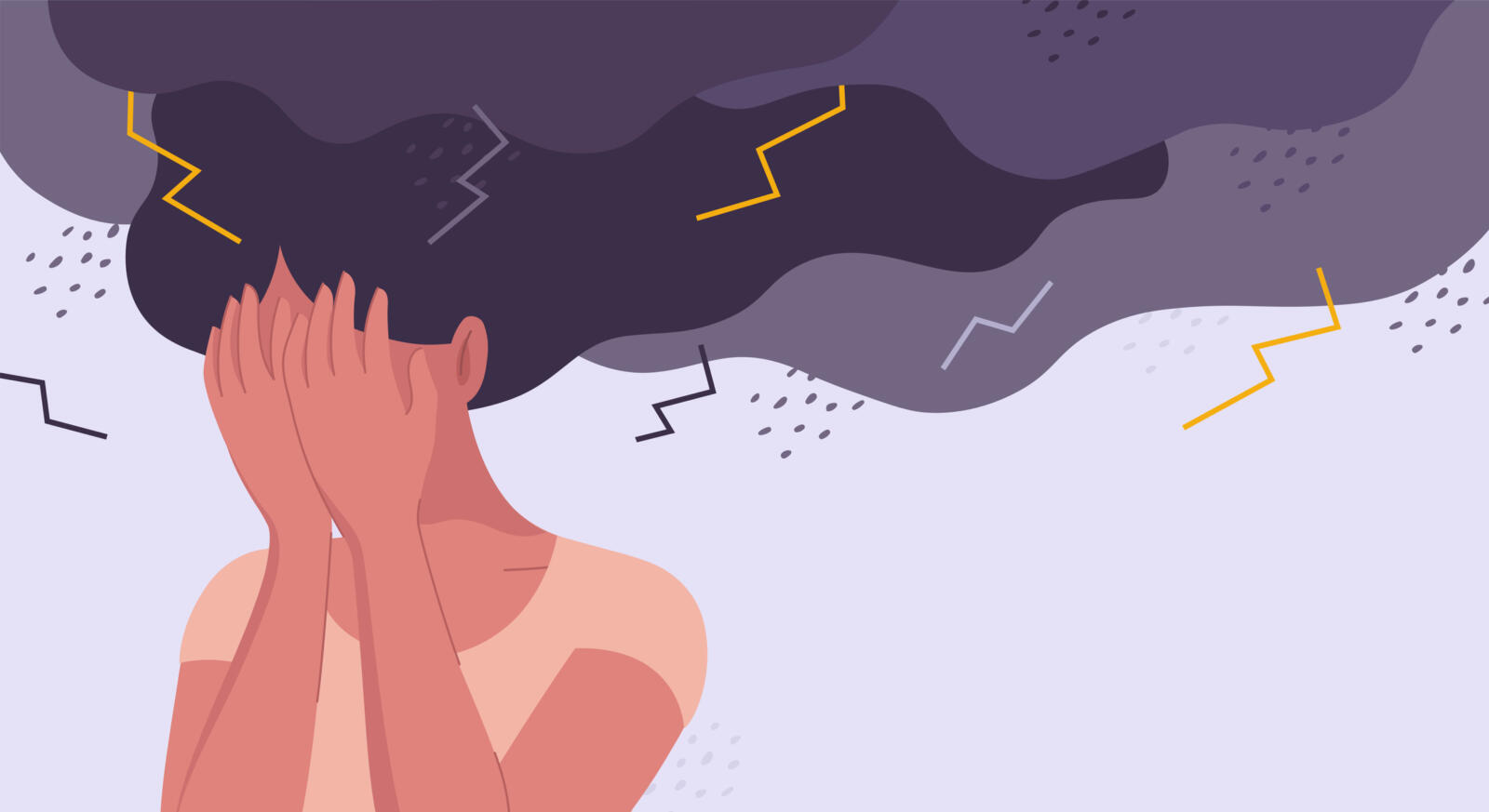With unabating thoughts and pressure building up, mental illness can be overwhelming. What happens when you add chronic illness and the intense feelings of isolation that accompanies it? This toxic cocktail can leave you thinking it will never end and that healing is not possible.
Being a teen is stressful by its very definition, navigating friends, academics, extracurriculars, and the approaching end of adolescence as we know it. Chronic physical and mental illnesses can further complicate the mess.
Let’s start with talking about chronic illness in general. Chronic illness can be defined as “a condition that requires medical attention and/or restricts a person’s life daily and lasts at least one year,” according to the ADAA. These diseases, like heart disease, diabetes, cancer, and dementia, can stem from risk factors, including environmental status, substance use, family history, and age. Out of all health conditions, chronic illnesses are the most common and costly.
With increased hospitalization, excessive worry, and/or changes in hormones, chronic illness can increase the likelihood of developing mental illness. Diagnosis of chronic illness has ties to sadness, denial, and grief, along with the financial burden connected to the frequently high cost of treatment. Chronic illness can also trigger anxiety as a person starts to correlate sizable aspects of their life – like doctor’s appointments – with fear. Then, combatting anxiety becomes another point of stress that continues the cycle.
As Laurel Nowak stated in Can Chronic Illness Cause Anxiety? Knowing When and Where to Get Help, “This is the nature of anxiety: it tends to compound. It interacts with the surrounding environmental and psychological factors and takes on a life of its own.”
Diagnosis can yield a sense of lacking control. Approximately forty percent of people with cancer report facing psychological distress manifesting in excessive worry or panic attacks, and those who navigate chronic pain are three times as likely to have anxiety symptoms.
Specific signs of anxiety in chronic illness patients include trouble sleeping, nightmares about physical health, and experiencing panic attacks about prognosis.
People with chronic illnesses are also more likely to face physical, social, emotional, and cognitive challenges. For teens with chronic illnesses, these challenges further compound an already complicated time. For example, illness, surgery, and different treatments can amplify concerns self-conscious teens have about physical appearance, fueling fears or distortions about one’s body due to scars or other effects.
Limiting chronic illness can interfere with developing a sense of independence, which teens both crave and for which we are biologically wired. Being a teenager today is draining enough with grueling course loads and excessive extracurricular activities. For those with chronic illness, the lift is even more exhausting if not impossible. Relationships, which are at the heart of teenage years, can be impacted as well by the strains of chronic illness.
Anxiety symptoms can then amplify chronic illness; stress, panic attacks, insomnia, and other reactions can prevent healing or worsen the chronic illness as self-esteem lowers.
Additionally, some risk factors for mental illness can directly tie to chronic illness. Parkinson’s disease and strokes cause changes in brain chemistry that can influence mental illness, for example.
That said, anxiety, like many other mental illnesses, is highly treatable, with options including medication, psychotherapies, brain stimulation therapies, and natural products. When navigating chronic illnesses, it is crucial to consult healthcare providers to ensure medications do not interfere with each other.
Other activities, balancing your diet, setting consistent schedules, getting sufficient sleep, and avoiding non-prescribed medication or substances, can help supplement treatment as well. For teens in particular, simply having strong and supportive relationships can move mountains.
With a myriad of treatments and considerations, recovery is far from simple, but it is possible with time and a network of support. Treating mental illness can improve physical health, and treating physical illnesses can improve mental health.
At the end of the day, navigating chronic illness alongside mental illness comes down to:
- Reaching out when in need
- Learning and understanding your condition
- Finding the right service providers that understand both physical and mental illness
- Acknowledging your priorities
- Celebrating your successes
- Defining your supports
- Developing mindfulness
- Challenging negative thinking and catastrophizing
- Determining ways to exercise your body
- Finding support groups
- Gaining outlets for both your struggles and joy
To parents of teens with chronic illness:
- Allow teens to express how they feel about their body and how it is affected by illness
- Inform teens about the side effects of medicines
- Encourage teen independence by involving them in health conversations and teaching them self-care
- Help teens connect with friends to combat isolation
Anxiety can affect every person differently. There is no singular correct answer, and success may not come immediately. While it takes perseverance, growth is possible. Your quality of life can improve.
There is also a larger solution in sight that covers so much of the mental illness journey. We must destigmatize mental illness. If we view mental illness as we do other medical conditions, there would be better prevention. Research shows treating mental and chronic illnesses together helps people manage both. Truly effective treatment means a better unification of mental health, primary care, and specialty care services.
We must treat the whole person, understanding all aspects of their journey, identity, and struggle. We must always remember that individuals are more than their illness.






